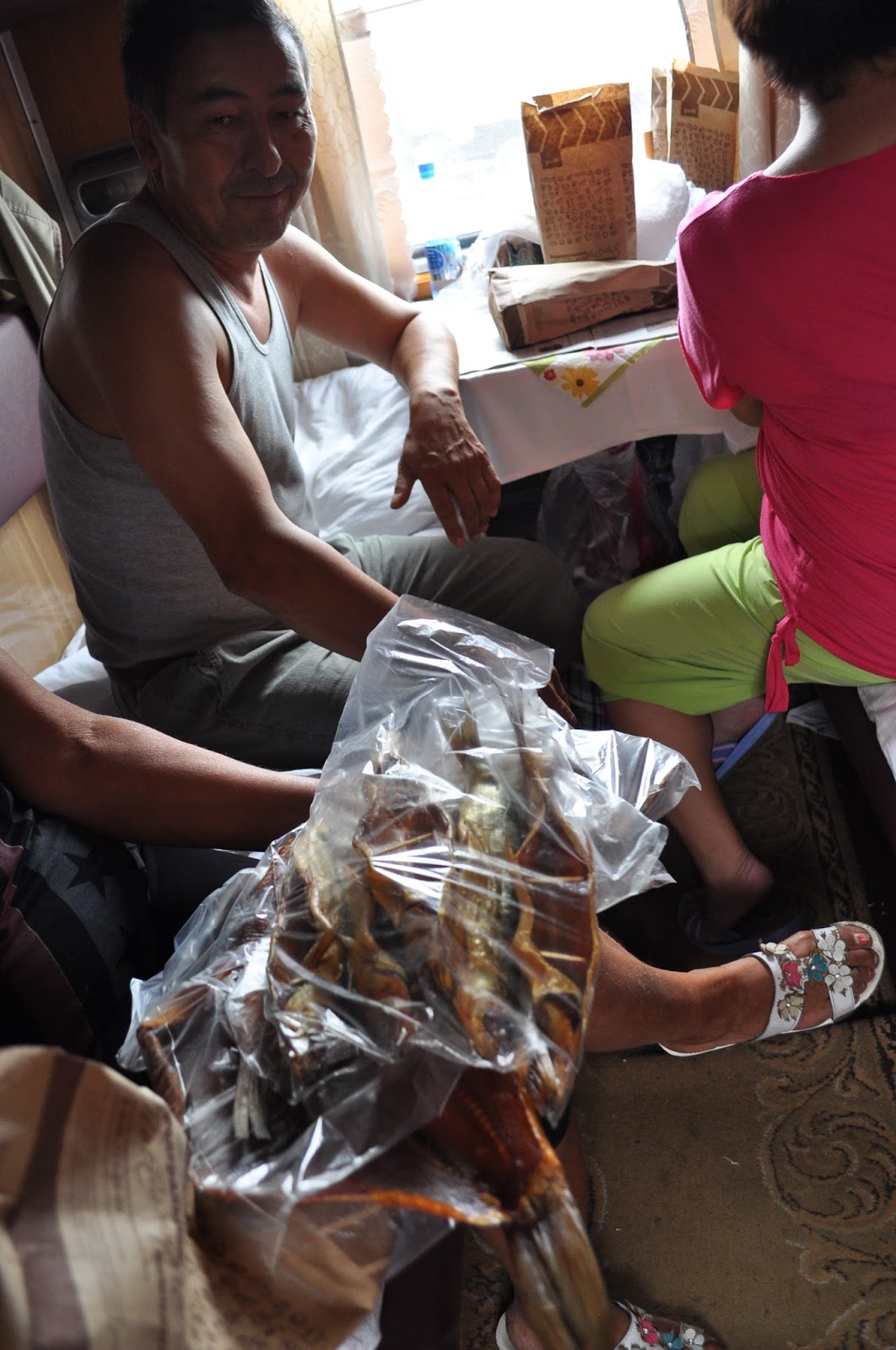When Kate Marsden had travelled from Irkutsk to Yakutsk she travelled up the river Lena by barge. The journey had to be made in the Summer – which lasts for only three months, as this is the only time the river is navigable. The rest of the year it is either frozen solid, in the process of freezing or melting.
A few years ago it was still possible to travel up the Lena to Yakutsk. It was a marathon journey though, taking a minimum of 5 days and a series of hydrofoils and possibly a barge or car ferry in between, where there was no accommodation, with passengers being expected to either sleep in their cars or on the deck (we brought our sleeping bags and mats in case this was to be us).
Unfortunately it now appeared that these options were no longer possible. The hydrofoils now only went part of the way up the river (the second part) and we still needed to find a way to get half way up – a journey of about 1000 kilometres. There was no information about a car ferry and the barge company we contacted flatly refused to take passengers.
We debated whether is was worth out while to catch the train (back tracking) to Ust-Kut where the boats left from and 'begging and asking around for a lift'...if we had more time to play with we certainly would have done this, however, as we needed to be in Yakutsk by the 21st and since all information was pointing towards the impossibility of travelling up the Lena we decided to forego
Also we needed to be in Yakutsk by the 21st in time for the Yakutsk international film festival, of which we were invited guests, so instead we forewent the Lena and decided to take the 28 hour train ride to Tynda on the BAM railway, then up to Neranguri where we could then take a bus on the M56, 20 hours on a very bad road to Yakutsk.
On the BAM train from Severobaikalsk to Tynda, that niggling feeling of disappointment I had felt over the new comforts and technology on the trans-siberian all washed away. The train was exactly the same! Gone were the electronic screens, giving information as to the time, temperature.
The interior of the carriage was decorated in brown fake laminated wood with beige curtains and maroon vinyl covered seats. In the compartment, the metal lights in the corner, all the hooks and storage places were all very familiar.
It wasn't even just the train. It was the whole experience. The metal toilets flushed directly onto the tracks with a foot pedal. They perpetually smelled of urine, regardless of whether the provinista had just cleaned it or not. And the provinista was constantly vacuuming the isle. It had been much harder to crack a smile from her in the first instance. It was far less comfortable (and pleasant) but I was strangely happy to feel that things hadn't changed completely and I revelled the familiarity.
To top things off I had been assigned one of the the top bunk – just like I had when travelled the trans-siberian all those years ago.
We stopped at a village about an hour or two into the journey. All the Russian's got off and bought smoked or dried omul fish, wrapped in paper and I remembered the Belarussians in the cabin next to mine, who had strung up reams of dried fish in their cabin, the smell emanated out into the hall. We didn't have the compartment to ourselves this time and shared with two Russian women. Olga and Nina. Olga ate her fish straight away. She could see I was amused by the whole thing and offered me some, handing me little pieces of the fish, handing it to me from her bunk below mine. On the trans-siberian, I had shared my compartment with three mongolians. They had brought with them a huge leg of lamb, wrapped in news paper, from which they carved off small pieces of meat throughout the journey. As Olga passed up small pieces of fish to me, they had passed up little pieces of lamb.
Tired of the fish, at the next stop I got off the train and bought a packed of pot noodles. When I'd travelled the trans-siberian I had barely eaten anything else. All the Russian, Mongolian and Belarussian travellers had taken loads of food supplies with them. The three Mongolians from travels before had not only brought with them the leg of lamb, they had also brought with them bottles of fermented mares milk, cheeses and processed meats, which they had hung up throughout the cabin from the clothing hooks. Most other compartments in my carriage had been similarly adourned, save from those occupied by other western Europeans, none of whom had brought much in the way of food supplies. We would all run off the train whenever it stopped to buy what food stuffs we could – which was usually limited to pot noodles.
I should also mention that on this current occasion, we had paid extra to have a slightly 'upgraded ' service which involved one meal a day and a pack of travel comforts, which included a series of magazines and news papers (all in Russian), a pair of flimsy slippers, sugar, and rather amusingly a shoe horn and shoe polish.




No comments:
Post a Comment